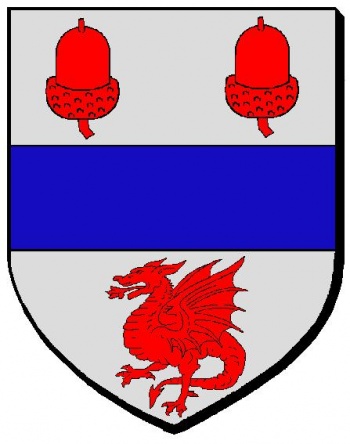Fossieux: Difference between revisions
Jump to navigation
Jump to search
Knorrepoes (talk | contribs) m (Text replacement - "Literature" to "Literature") |
Knorrepoes (talk | contribs) m (Text replacement - "====Origin/meaning====" to "===Origin/meaning===") |
||
| Line 11: | Line 11: | ||
D'argent à la fasce d'azur, accompagnée en chef de deux glands de gueules et en pointe d'un dragon du même. | D'argent à la fasce d'azur, accompagnée en chef de deux glands de gueules et en pointe d'un dragon du même. | ||
===Origin/meaning=== | |||
The bar is taken from the arms of the d'Amance-Bioncourt family, oldest known Lords of Fossieux. The acorns are taken from the arms of the Longeville lès Saint Avold abbey, which had several possessions in the village. The dragon is the symbol of St. Margareth, the local patron saint. | The bar is taken from the arms of the d'Amance-Bioncourt family, oldest known Lords of Fossieux. The acorns are taken from the arms of the Longeville lès Saint Avold abbey, which had several possessions in the village. The dragon is the symbol of St. Margareth, the local patron saint. | ||
Revision as of 19:43, 22 June 2017
FOSSIEUX
Département : Moselle
Official blason
D'argent à la fasce d'azur, accompagnée en chef de deux glands de gueules et en pointe d'un dragon du même.
Origin/meaning
The bar is taken from the arms of the d'Amance-Bioncourt family, oldest known Lords of Fossieux. The acorns are taken from the arms of the Longeville lès Saint Avold abbey, which had several possessions in the village. The dragon is the symbol of St. Margareth, the local patron saint.
Contact and Support
Partners:
Your logo here ?
Contact us
© since 1995, Heraldry of the World, Ralf Hartemink 
Index of the site
Literature : Image from http://www.armorialdefrance.fr










